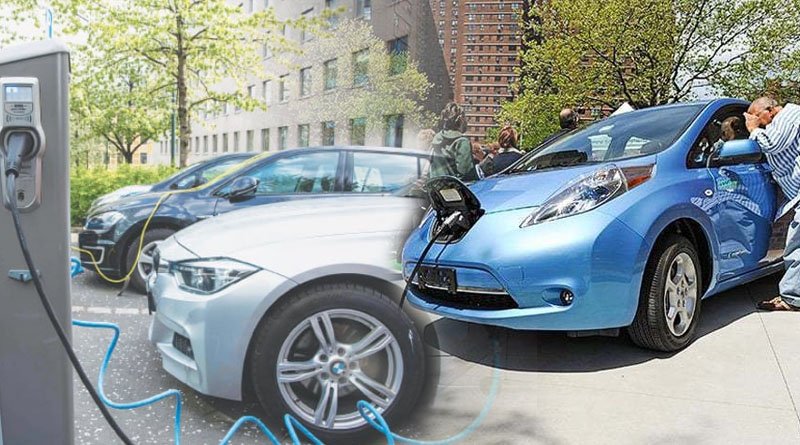Prof. Zaffar pointed out that the transportation industry is responsible for nearly 43% of all airborne emissions in the nation.

Prof. Nauman Ahmad Zaffar, Director of Energy and Power Systems Cluster and the National Incubation Center said that “developing EVs in Pakistan is a potential solution for the nation in terms of enhancing the quality of the environment and making full use of electricity.”
“For Pakistan, electric transportation is now necessary. Lahore University of Management Sciences (LUMS) and local businesses are actively engaged in various engagements related to the development of the Electric Vehicle (EV) value chain in the nation, among the organisations working to introduce electric mobility in Pakistan “He stated in an interview.
Prof. Zaffar pointed out that the transportation industry is responsible for nearly 43% of all airborne emissions in the nation. In the meantime, Pakistan’s excess electricity generation capacity has led to the accumulation of a sizable amount in capacity payments. In such a scenario, it is necessary to introduce non-seasonal and flexible loads, and EVs have proven to be a successful solution.
The development of the National EV policy has benefited from a number of favourable factors, including the Pakistan government’s encouragement of EVs. International businesses strongly favour Pakistan’s EV market. Chinese businesses have also been actively promoting themselves in recent years, including Chery, MG, Changan, BAIC, and Haval.
According to Yin Tongyue, chairman and party secretary of Chery Holding Group and a member of the Chinese National People’s Congress, the automobile industry has historical, social, moral, and economic obligations. It also has the opportunity to advance China’s status as a “auto power” by embracing the current round of technological revolution and globalisation.
As the first Chinese automaker to enter the new energy technology market, Chery began its research and development (R&D) journey for fuel-efficient and new energy vehicles in 1999. Chery has built a strong R&D system for new energy technologies over many years of development, covering vehicle integration, core technologies, and core component development capabilities.
It currently leads the auto industry in terms of patent applications and grants, with more than 900 patents in the new energy field. Chery has achieved early success in the PHEV hybrid market. Chery’s DHT, a full-featured hybrid transmission, has four key advantages: 3 engines, 3 gears, 9 working modes, and 11 speed ratios.
The TIGGO 8 PRO e+, Chery’s first PHEV model to go into mass production, gained global attention. Chery’s subsequent PHEV models will also cover the global market, including Pakistan, bringing a greener travel experience for Pakistani consumers, setting a new standard for Pakistan’s automobile industry, and helping Pakistan’s market transition from traditional fuel vehicles to new energy vehicles.
Due to the integration of two fully distinct drivetrains—electric and gasoline-based—into a single vehicle, PHEVs are extremely complex machines.
PHEVs typically cost more than their all-electric counterparts as a result. The complexity of manufacturing locally is also significantly increased by the presence of two drivetrains, which, when combined with the price of maintenance and after-sales services, raises the bar for adoption.
In Pakistan, EV manufacturing will need to rely heavily on imports in the short term due to the limited capacity of local manufacturers to develop various modules/components of EVs, especially batteries and battery cells.
According to Prof. Nauman Zaffar, a BEV’s battery costs almost half as much as the car itself. He made this statement to the media. “China holds a sizable market share in the highly competitive supply chain for the materials used to make batteries for EVs.
This offers Pakistani automakers an excellent chance to work with their Chinese competitors in the production of battery cells, which can lower the initial cost of EVs. This might be a G2G or B2B chance for enduring cooperation that could result in a win-win circumstance,” “he continued.
